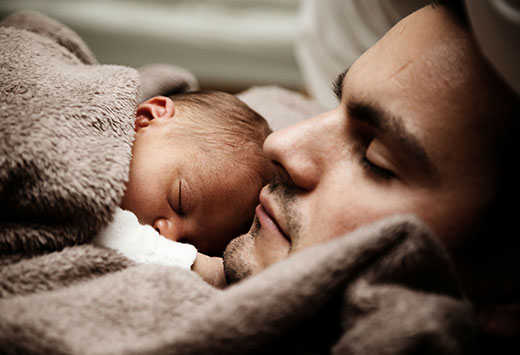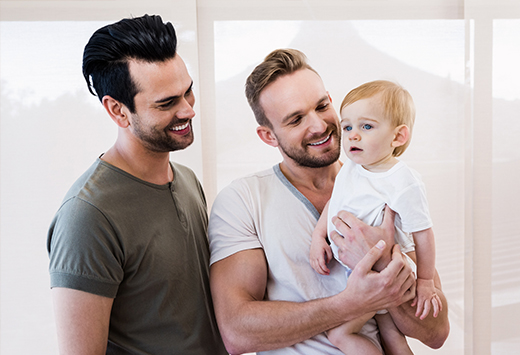Getting your child to sleep through the whole night is a huge issue for all parents, but it is especially difficult for adoptive parents. How can they build attachment with you while also getting a good night sleep?
Transitions
Adoptions are all about transitions. Transitions for the children. Transitions for you. Transitions in the home environment. Home is where transitions stop, and we can finally rest. When you first bring a child “home,” it will not feel like home for them; instead, it will be just another of a long list of transitions. They will struggle to find true rest until the transition has settled and that space, even if it is only their bedroom, finally becomes their home.
Homes are much more than just rooms filled with material things. They are deeply rooted in relationships with people, especially caregivers. You, as an adoptive parent have a crucial role to play in helping your child make that transition, finally feeling at home in your house with you, and getting some much-needed sleep.
Some parents make the mistake of keeping their children in the same bedroom as themselves initially, hoping that it will provide them quick access when the child stirs or gets upset. The sentiment is right, being close to the child, but the strategy often backfires on them. Typically, these children adjust normally at first, but once they are moved to their own bedroom, they backslide into waking up crying in the night, bed-wetting, and other unfortunate behaviors. The reason is that you have transitioned them successfully to your own room, then tried to transition them again to a new place to sleep.
A better way to handle this is to move into their room for the first month or so. You can move from their bed to the floor (or start on the floor if the bed is too small) and get them accustomed to sleeping in their own room. Once they are comfortable there, you can move back to your own room without forcing them to go through another environmental transition again.
Grief in the Night
Adopted children go through grieving transitions as they become acquainted with their new family. They may have anxiety about their former families and caregivers. They may be scared of new caregivers they do not know yet. You can expect all of this anxiety, and the grief that accompanies it, to come out at night. Bedtime is the first time and place that they may feel comfortable enough to express those complicated emotions.
What does that look like? They may try to hold on to you and push you away at the same time. They may tell you they love you and hate you in the same sentence. You can expect to feel confused by the signals they send you, and if you do, try to imagine the way it must feel to your child, with those conflicting feelings inside you. It is important to meet these confusing emotions with love, patience, and perseverance. They need to learn that they can depend on you.
One helpful tip is to keep a very consistent bedtime routine. You can help your child process this grief by asking them age-appropriate questions each night about what they think and feel. This will not make them grieve any faster, but it will invite you into the process with them and help you come out with a stronger relationship at the end.
Adoption is a journey for the child as well as the parent. Be aware of their transitions and be a willing partner with them on that journey, and you will win their respect and love as a new parent eventually.




